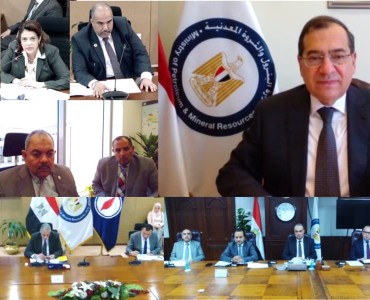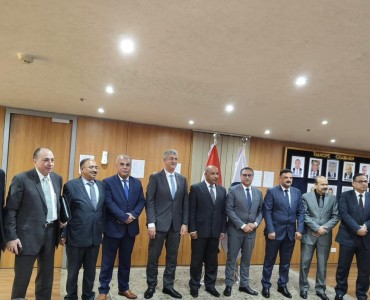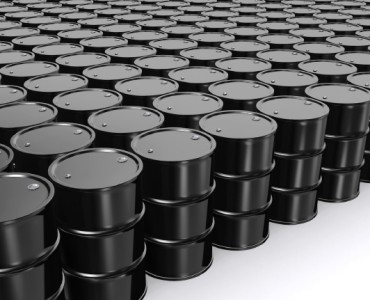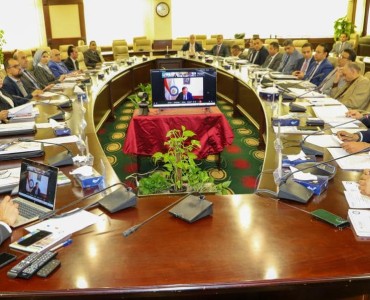Sharjah-based Dana Gas reported lower sales and profit in the first quarter, as cost-cutting wasn’t enough to mitigate the effects of lower oil and gas prices, but senior executives see improvements ahead.
Dana Gas, whose largest shareholder is Crescent Petroleum, also based in Sharjah, reported that revenues fell to US$115 million in the first quarter, down from $180m in the same period last year. Gross earnings were nearly halved at $55m versus $106m and net profit was $12m compared with $45m.
Despite the gloomy numbers, chief executive Patrick Allman-Ward said the outlook was more positive as the company continues to make progress on one of its two main assets, the offshore gas production operation in Egypt’s West Nile area. He said he also expects oil and gas prices, which improved in the second quarter, to stabilise this year and increase next year.
Overall production was little changed on the year at 68,700 barrels of oil equivalent per day, down 100 boepd from the first quarter of last year. Egypt production fell 1,400 boepd to 37,700 boepd due to natural field depletion. Production at the company’s other main asset, the Khor Mor gas field in the Kurdistan region of Iraq, production was up 1,100 boepd at 30,400 boepd.
The company has struggled in the past to get paid from its two main assets because of troubles in both Egypt and Kurdistan. Dana Gas struck a deal with Egypt at the end of last year, whereby it will be able to recoup the money it is owed by receiving the associated liquid (condensate) from the gas fields project it has, in return for which it will make additional investment to develop further fields over the next two years.
Mr Allman-Ward said that at the end of the first quarter, Egypt owed Dana Gas $243m in total, which was up from $233m at the end of last year, though the overdue amount was lower at $173m. Dana Gas in currently moving additional equipment onto its gas fields in the Nile Delta and expects to start recovering condensate and exporting it by August, Mr Allman-Ward said.
Egypt has promised to clear its outstanding backpayments owed to all the international oil and gas companies operating in the country by the end of next year. The amount outstanding is currently about $5 billion, the same as at the end of last year. Mr Allman-Ward said Dana Gas expects to get a pro rata share of any “bullet payments” the Egyptian government will make to clear the outstanding balance. Meanwhile, the company has earmarked an additional investmnet of $350m for Egypt to develop and improve more than three dozen wells.
The company has benefitted from the weaker oil market in that it is seeing much cheaper rates for oil services, including oil rigs. “We’ve seen quite a significant reduction in the cost of oilfield services in general, and specifically rig rates in Egypt,” Mr Allman-Ward said. The cost of rigs has fallen “more than 10 per cent in terms of rig rates in Egypt,” he said, adding “I would expect other field services to be following suit. What we tend to see is there is a lag in the fall in oil prices and that trickling through to cost of oilfields services. We’re on the downward slope with that and it hasn’t reached bottom yet.”
The agreement Dana Gas has with Egypt is expected to clear its arrears by the end of 2018, though those backpayments could be brought up-to-date by the end of 2016 if the Egyptian government fulfils its public promises to do so.
Dana Gas head of investor relations, Robinder Singh, said the company is targeting a return on its new Egyptian drilling investment better than the industry average of between 15 and 20 per cent.
The company still has problems in Iraqi Kurdistan, where it has taken the Kurdistan regional government to the London Court of Arbitration and obtained a favourable ruling in April. However, that process could drag on for years before any ruling on payment would be reached, and the KRG disputes the court result and shows no sign of reaching a negotiated settlement anytime soon, according to Dana Gas executives.
The dispute is a complicated contractual one but it is tied up in Iraq’s internal problems – both the violence from the ongoing sectarian war as well as the political disagreements between the KRG and central government. The effect on the Khor Mor project is that payments for exports that Dana Gas says it is owed have gone unpaid and it and its partners have withheld investment for years that would have increased production substantially.
Dana Gas reckons that as of the end of the first quarter it was owed $770m from the KRG and those arrears keep piling up – they were at $550m in the final quarter of 2013.
“We put a solution on the table in 2009 that if taken up we could be supplying all of the gas requirements [for Kurdistan] by now, and they wouldn’t have to be importing $3-to-$5 billion a year in diesel [to keep power plants running] just from the natural investment we would have made,” said Mr Allman-Ward.
The company’s other main project, the Zora gas project offshore Sharjah, is expected to see first gas in the middle of this year, with the expected average of 14m standard cubic feet a day (6,650 boed), which will be paid at domestic gas prices and all the output being taken by the Sharjah authorities. It is expected to contribute gross revenue of about $60m.
Source: The National












